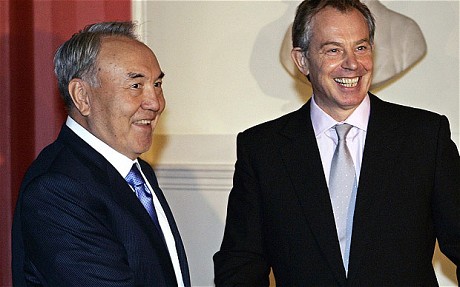Murder in Samarkand – Now a Major TV Series
The Independent has an article about the new FCO sponsored Mitchell and Webb “comedy”, which was made with FCO co-operation and is openly an attempt to bolster its image – and to make light of, and acceptable, the disgraceful British alliance with the dictator of Uzbekistan. The argument that this series is based on – and is an attempt to counter the effect of – Murder in Samarkand – is overwhelming.
Not least because the producers of Ambassadors, Big Talk, attempted to buy the rights to Murder in Samarkand. They invited me to, and I attended, a meeting in their offices and they had several copies of Murder in Samarkand in their office. They also had access to the original unpublished (and much longer) manuscript of the book, under its original title Should Not Be Known. For them to pretend their “Tazbekistan” comedy is unrelated does not just make them lying bastards, it is ludicrous.
I did get solicitors to write both to Big Talk and to the BBC, but unfortunately the lawyers wanted money amounting to tens of thousands to apply for a copyright injunction, and I just don’t have it.
The Independent article takes the opportunity to recycle ten year old slurs against me by the FCO, without mentioning that they were disproven.
I wonder if one of my talented commenters could design an online “poster” for Murder in Samarkand, showing the book, Mitchell and Webb or the Ambassadors logo, and the slogan “Murder in Samarkand – Now a Major TV Series”. Then we can get it everywhere we can on the web, and the bastards can try and sue me! That would turn the tables nicely.
The other extraordinary thing in the Independent article is the contention that New Labour had an ethical foreign policy, as though the tabloid humiliation and marginalisation of Robin Cook- and the dodgy dossier and invasion of Iraq – had never happened.

